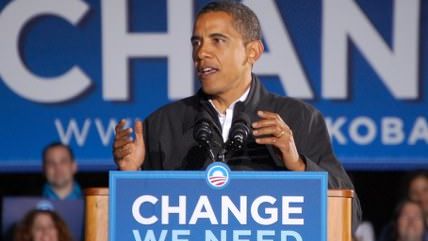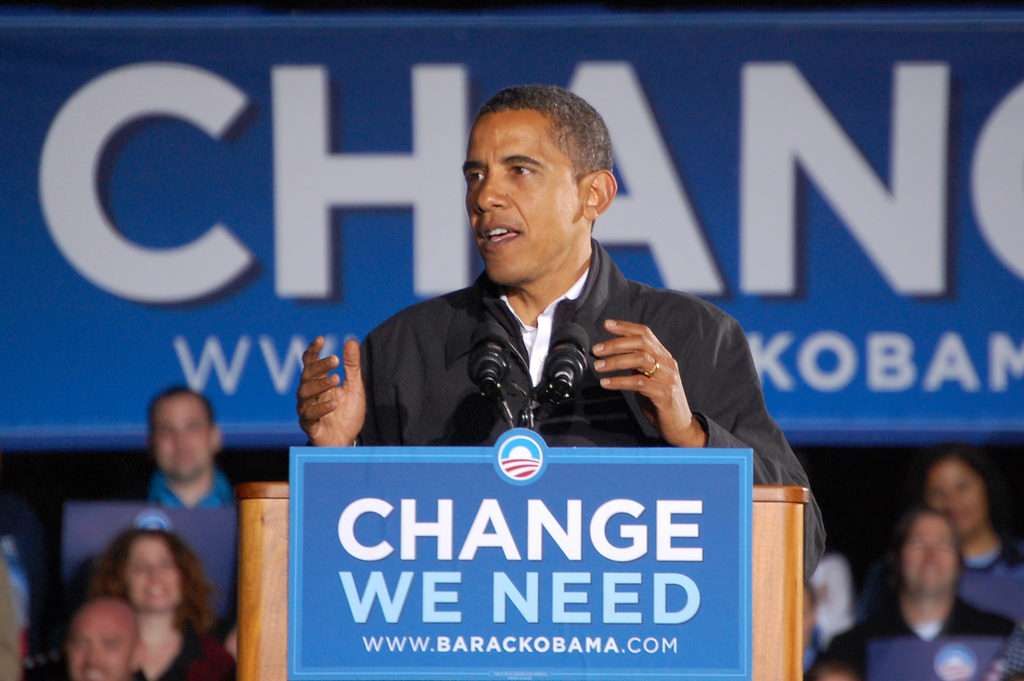Is a Major, Merciful Change in Presidential Pardon Policy Brewing?


Jacob Sullum has written extensively about President Barack Obama's reputation for having very little mercy toward federal prisoners, hardly touching his executive authority to grant clemency. Last week, the president provided clemency toward a drug offender who had been, due to a mistake, sentenced to a longer sentence term than federal sentencing guidelines dictated. That is to say, the president's latest act of mercy was actually fixing a paperwork mistake.
But a piece by Liz Goodwin on Yahoo News today indicates a major shift may be coming. If the anonymous (of course) administration source talking to Goodwin is telling the truth, it could be big:
Now, in his final years in office, Obama … wants to use his previously dormant pardon power as part of a larger strategy to restore fairness to the criminal-justice system. A senior administration official tells Yahoo News the president could grant clemency to "hundreds, perhaps thousands" of people locked up for nonviolent drug crimes by the time he leaves office—a stunning number that hasn't been seen since Gerald Ford extended amnesty to Vietnam draft dodgers in the 1970s.
The scope of the new clemency initiative is so large that administration officials are preparing a series of personnel and process changes to help them manage the influx of petitions they expect Obama to approve. Among the changes is reforming the recently censured office within the Justice Department responsible for processing pardon petitions. Yahoo News has learned that the pardon attorney, Ronald Rodgers, who was criticized in a 2012 Internal watchdog report for mishandling a high-profile clemency petition, is likely to step down as part of that overhaul. Additional procedures for handling large numbers of clemency petitions could be announced as soon as this week, a senior administration official said, though it could take longer.
Sources for Goodwin's story partly lay the blame for Obama's terrible record for pardons on the Office of the Pardon Attorney, part of the Department of Justice:
The pardon attorney, former military judge Ronald Rodgers, sends his recommendations of whether or not to grant the petitions to the Deputy Attorney General's office, which then sends them on to the White House. The pardon attorney was recommending that the president deny nearly every single petition for a pardon or a reduced sentence, according to one senior official in the Obama administration.
But even though the president was almost certainly aware that the pardon process was deeply flawed, he took no steps to fix it. In 2009, Obama's top lawyer, Gregory Craig, drafted a proposal urging a more aggressive use of the presidential pardon and clemency power, and calling the current system broken. One of Craig's recommendations was to take the pardon attorney's office out of the Department of Justice entirely, so that the people vetting clemency petitions were not so close to the system that put prisoners away in the first place.
"I was of the belief that the current system for making pardon decisions was broken and it needed to be reformed," Craig said. His suggested reforms weren't implemented, and he left the White House that year.
Read the full, thorough accounting of the disparity between the administration's stated positions and what was actually going on in the Office of the Pardon Attorney here.
Attorney General Eric Holder essentially verified Goodwin's story (the outcome, if not the internal conflcit) later in the day by announcing an "expanded program" that will lead to additional requests for clemency. But will more drug war prisoners actually get pardons?


Show Comments (20)